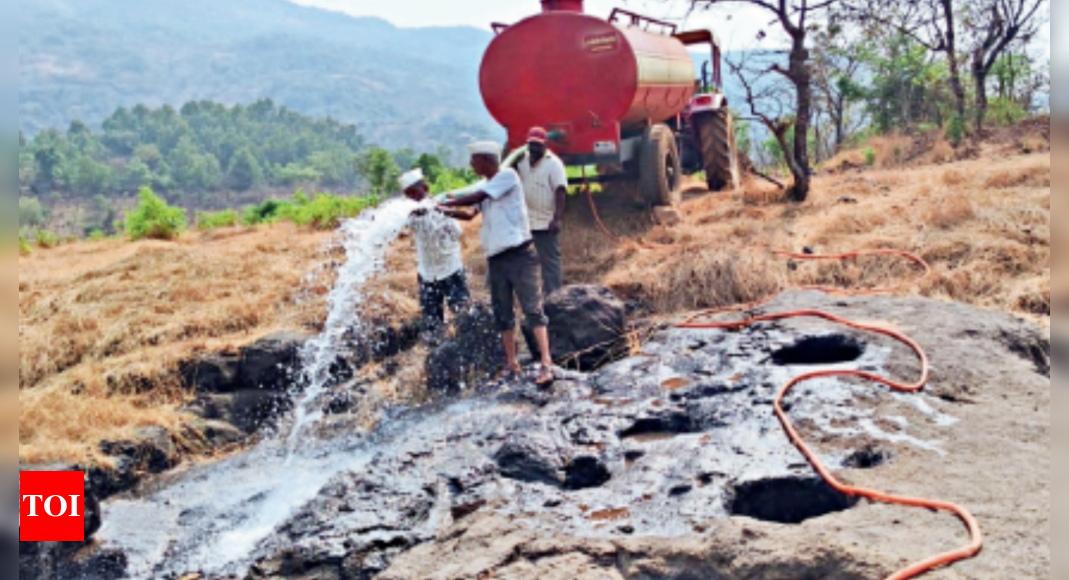
PUNE: The forest department said the increase in heat had led to a surge in the number of forest fires in the division with 50 such incidents where forest on 100 ha land had burnt down being reported from January to April 29.
The forest survey of India data said the number of large forest fires in Maharashtra stood at a staggering count of 599.
Recently, the department saw two difficult cases in Bhor and Velha where fire engulfed hectares of forest land.Officials said that only blowers were available making it difficult for the staff to bring the blaze under control.
“We have made fire lines as usual. However, the grass dries faster because of the heat and there is no moisture content left to prevent spread of fire. It becomes tough to douse the blaze in such situations. Mostly, forest fires are started by electric sparks or burning cigarette buds thrown carelessly,” said an official from the department.
Additionally, the department reported an increase in the number of human-wildlife conflict with animals venturing out of their territory in search of water.
Deputy conservator of forests Mahadev Mohite said animals were migrating in search of water and this was bringing them in contact with humans resulting in conflict situations frequently. “We often find animals stuck in wells or other water bodies, and have to rescue them. Our teams are on standby to help in such situations. Water bodies have dried up in the forest regions and animals are forced to stray into human settlements,” he said.
The department was struggling to fill water holes for animals across the district, but had received help after TOI published an article named ‘Waterholes for wildlife dry up as crisis impacts supply’ on April 24. The article emphasised the impact of water shortage on wildlife with tankers being an expensive affair for the department.
“Several companies and volunteers reached out to us after reading the article, saying they will like to help. One company has adopted a waterhole for a month and will ensure water supply through tankers in Saswad. It has helped us manage the situation to a certain extent, but the problem persists. We hope more individuals will help us,” said Mohite.
The department’s plantation activity conducted on 79 ha last year had been severely affected by the heat. “The soil is slowly drying and we do not have enough water,” he said.
Meanwhile, forest officers and staff members were also troubled by the heat with their profession requiring them to stay on field.
